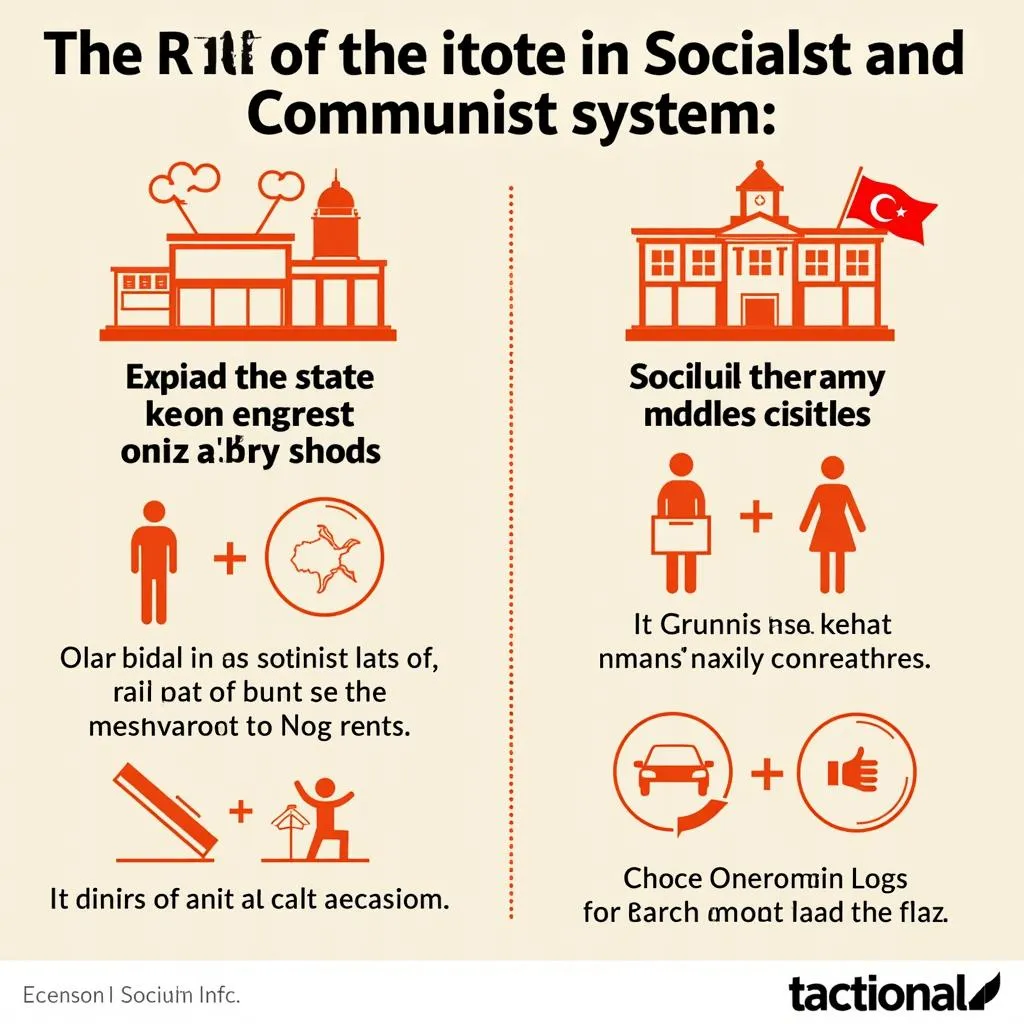The terms “socialism” and “communism” are often used interchangeably, leading to confusion and misinterpretations. While they share some common ground, particularly in their critique of capitalism and advocacy for social equality, they represent distinct ideologies with different historical trajectories, theoretical frameworks, and practical implications. This article delves into the nuanced differences between socialism and communism, examining their core principles, historical evolution, and contemporary relevance.
Understanding the Roots of Socialism and Communism
Both socialism and communism emerged as responses to the social and economic inequalities engendered by industrial capitalism in the 19th century. They challenged the prevailing notion of private property and the concentration of wealth and power in the hands of a few. However, their proposed solutions to these issues diverged significantly.
Socialism, in its essence, advocates for social ownership or control over the means of production, distribution, and exchange. This can take various forms, ranging from state ownership to worker cooperatives, but the underlying principle remains the same: to create a more equitable society by ensuring that the benefits of economic activity are shared more widely.
Communism, on the other hand, envisions a classless, stateless society where private property is abolished and the means of production are owned collectively. It posits that this radical transformation can only be achieved through a revolution led by the working class, overthrowing the existing capitalist order.
 Socialism and Communism
Socialism and Communism
Key Differences: Ownership, Control, and the Role of the State
One of the most fundamental distinctions between socialism and communism lies in their approach to ownership and control. While both advocate for social ownership, their interpretations and implementations differ.
Socialism generally accepts a mixed economy, allowing for both private and public ownership. The extent of state intervention varies depending on the specific socialist model, but the focus remains on regulating the market to ensure social welfare and reduce inequality. This could involve progressive taxation, robust social safety nets, and public provision of essential services like healthcare and education.
Communism, in its purest form, rejects private ownership altogether, aiming for complete communal ownership of all resources. The state, seen as a tool of class oppression, is ultimately meant to wither away as society transitions to a stateless, classless utopia. However, in practice, communist regimes have often relied on strong centralized states to implement their revolutionary agendas.
 Role of the State
Role of the State
Historical Trajectories and Contemporary Manifestations
The 20th century witnessed the rise and fall of various socialist and communist experiments around the world, each offering unique interpretations and implementations of these ideologies.
Socialism found expression in democratic socialist movements in Europe, advocating for social justice and economic equality within a democratic framework. Countries like Sweden, Norway, and Denmark exemplify this model, characterized by strong welfare states, robust labor unions, and a commitment to social democracy.
Communism, on the other hand, manifested in revolutionary movements led by figures like Lenin, Stalin, and Mao Zedong. These regimes, while espousing ideals of equality and liberation, often resulted in authoritarianism, political repression, and economic inefficiency. The collapse of the Soviet Union in 1991 marked a turning point in the history of communism, leading to a reassessment of its viability and desirability.
The Continuing Relevance of the Socialism vs Communism Debate
Despite the historical shifts and ideological nuances, the debate surrounding socialism and communism remains relevant today. As societies grapple with rising inequality, climate change, and the challenges of globalization, these ideologies continue to offer competing visions for a more just and equitable future.
Understanding the distinctions between socialism and communism is crucial for navigating contemporary political discourse and engaging in informed discussions about the future of our societies. While they share a common origin and some overlapping ideals, their divergent approaches to ownership, control, and the role of the state have resulted in vastly different outcomes.
Conclusion: Navigating the Complexities of Socialism and Communism
The socialism vs communism debate transcends simple definitions, encompassing a spectrum of political thought and historical experiences. While both ideologies strive for social justice and economic equality, their methods and ultimate goals differ significantly.
As we move forward, it is essential to engage critically with these ideologies, learning from both their successes and failures. By fostering a nuanced understanding of socialism and communism, we can better address the challenges of our time and create a more just and equitable world.
Frequently Asked Questions (FAQs)
1. What is the main difference between socialism and communism?
The key difference lies in their approach to ownership and the role of the state. Socialism allows for a mixed economy with varying degrees of state intervention, while communism aims for complete communal ownership and the eventual abolition of the state.
2. Are there any successful examples of socialist countries?
Countries like Sweden, Norway, and Denmark are often cited as examples of successful democratic socialist models, characterized by strong welfare states and a commitment to social equality within a democratic framework.
3. Why did communism fail in many countries?
There are multiple factors, including authoritarianism, economic inefficiency, lack of individual freedoms, and external pressures.
4. Is communism still relevant today?
While the collapse of the Soviet Union led to a decline in communist movements, the ideology continues to inspire some activists and intellectuals who critique capitalism and advocate for radical social change.
5. What are the future prospects for socialism?
Socialist ideas continue to influence political discourse, particularly in the context of addressing inequality and climate change. However, the future of socialism likely depends on its ability to adapt to changing circumstances and offer viable solutions to contemporary challenges.
Need Help? Contact “Truyền Thông Bóng Đá”
For further inquiries or assistance, please contact us:
- Phone: 02838172459
- Email: truyenthongbongda@gmail.com
- Address: 596 Đ. Hậu Giang, P.12, Quận 6, Hồ Chí Minh 70000, Việt Nam
Our dedicated customer support team is available 24/7 to assist you.